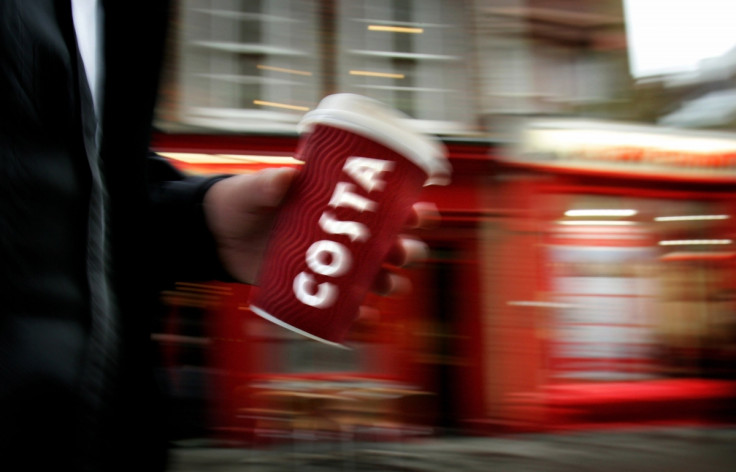Deborah Doane: Costa Coffee is serving up nothing but bad news with its living wage price rises
Well done Costa Coffee. It's managed a PR stunt of the highest order: paying a living wage to its staff and passing the cost on to consumers. Many people, including those in the media, will think this is just fine. But it isn't.
If every business that pays a living wage opts for the pass-it-on strategy (which they are likely to do), it means those at the bottom will to pay the price to maintain the ridiculously high salaries of those at the top. Costa is effectively giving with one hand and taking with the other. This isn't about income inequality; it's about business as usual for the 0.1% who refuse to have less, in favour of the greater good.

Whitbread, the owner of Costa Coffee, has estimated that the rise will cost its business between £15m and £20m a year, so it considers it reasonable to pass the cost on to consumers. But let's look at the facts: its profits this year rose by 18%, pushing £500m, while the executive directors alone take home a combined £14m. Incoming CEO Alison Brittain's base salary is a mere £775,000, but with bonuses and incentives it could be worth closer to £6.4m.
Costa's move is in stark contrast to the California CEO who took a massive pay cut to enable his employees to live a reasonable life. Dan Price, from credit card processing company Gravity, cut his own salary to bring the minimum wage paid in his company to $70,000, a figure that's argued to be a point at which people experience a sufficient level of well-being. Unfortunately, right-wing America objected heartily to his move and many withdrew their business in protest at the "socialist" takeover.
The High Pay Centre's trusty calculator shows that as of 9.40am on Wednesday 9 September, the average FTSE 100 CEO had already earned £3,203,603 this year alone – rising £1 every second. Average CEO pay is now 183 times that of the median full-time worker. That ratio was closer to 50:1 in the late 1990s, even then an outrageous chasm between rich and poor.
With the wage gap between the highest and the lowest still on the rise, wouldn't it be more ethical for those at the top to take just a little bit less, rather than bleeding consumers dry? Most consumers are average workers, earning average wages.

The head of the CBI claims a living wage will wipe out the profits of the UK's top businesses. It made a similar claim when the UK introduced the national minimum wage in 1998, arguing employment would fall by two million within two years of its introduction. Instead, unemployment dropped by 200,000.
CEOs are clever people. One hopes they can figure out that if you starve the very people who buy your products, you starve the whole economy. Getting pay right shouldn't mean squeezing low-paid consumers at the same time. Sadly, however, that seems to be the myopic strategy any company that believes it is ethical tends to employ. It happens elsewhere: supermarkets stock Fairtrade or pay a farmer a reasonable price while making consumers fork out more more for the privilege.
Most of the arguments that come from those at the top about the need to maintain egregiously high salaries are simply hogwash, according to research from The New Economics Foundation. "Talent" won't leave due to less pay and CEOs making a mint don't necessarily deliver better results. Truly progressive companies will see that moves to pay a living wage – whether it's to employees or to suppliers – will ultimately need to engender more structural change that will reduce rather than re-enforce inequality.
Don't be duped by companies who cry wolf that this will destroy their business if they don't pass on the cost, or reduce employment, or whatever. They can afford to make the shift, and everyone will benefit more in the long run.
Deborah Doane is a writer and consultant on new economics and sustainability. She was previously director of the World Development Movement.
© Copyright IBTimes 2025. All rights reserved.






















